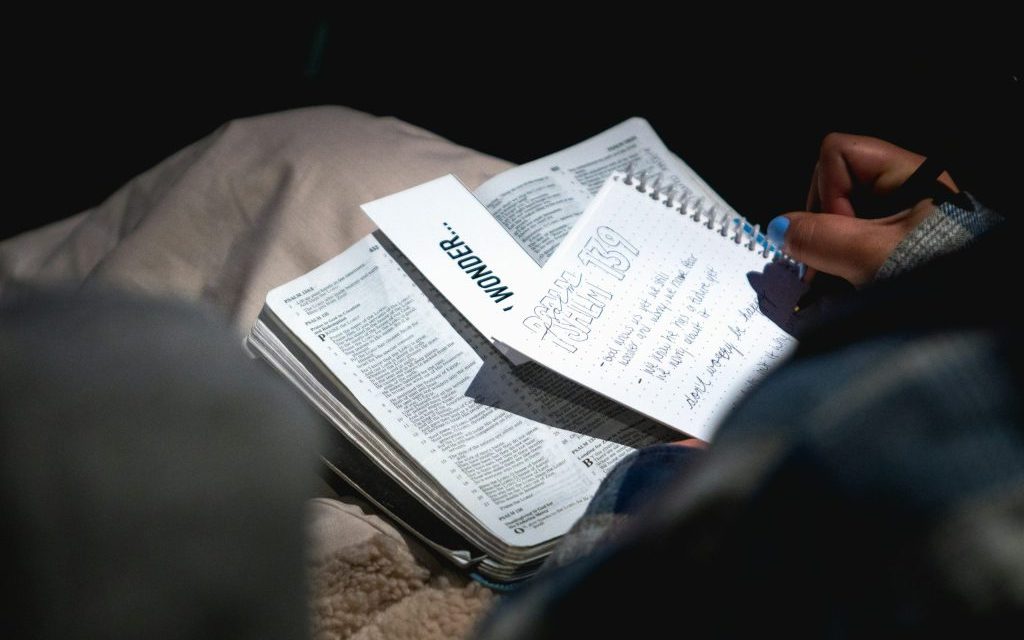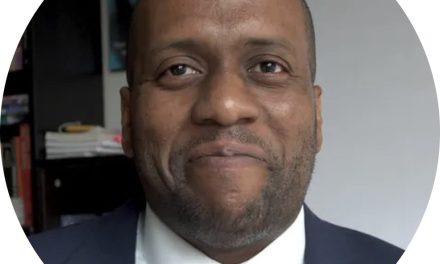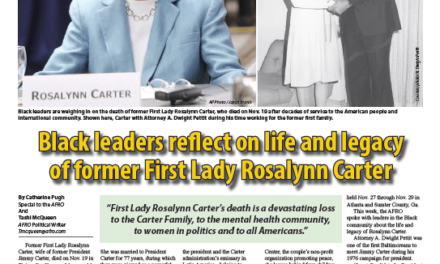By Rev. Dorothy S. Boulware
Overview:
Black parishioners’ emotional investment in the 2024 presidential election left some in mourning over its outcome. Pastors believe the right message of resilience and hope can offer strength and inspiration to carry on.
Most pastors agree that certain funerals can test them most in preaching. It isn’t easy to provide a message of comfort, wisdom and hope when the deceased is a child, or a victim of police brutality or a domestic-violence murder victim, or a young person in so much pain they took their own lives.
But what does one say after a devastating presidential election?

For months, Black America had cautiously hoped that Vice President Kamala Harris would make history as the first Black woman president of this country. Former President Donald Trump destroyed that hope, leaving many in the community in mourning, perhaps wondering why God allowed it to happen.
“We are holding weighty matters today,” Rev. Dr. Roderick D. Belin, publisher of the AME Church, said as he convened a gathering of AME bishops and clergy to consider which anecdotes, parables or scripture to deliver from the pulpit this Sunday.
“Each of us brings our own emotions, and concerns,” he says. “I invite you to center and take a deep breath. Hold it for just a moment and let it go.”
Each of the speakers first revealed the angst they’d endured overnight as reality set in and the victory was handed to President-elect Donald Trump. Many of the themes on which they landed involved Biblical themes of faith in times of uncertainty and anxiety.
Bishop Francine Brookins, presiding prelate of the 5th Episcopal District of the African Methodist Episcopal Church, said parishioners are facing multiple anxieties: “Young people receiving threatening texts. Seniors fearing loss of social security. People who voted for Donald Trump, [and] people who will be most heavily victimized by those choices.”
Yet the church was made for this particular season, she says, referencing Jesus’ proclamation in Luke 4, where he listed the people and the conditions for which he’d been called and anointed. It’s “the real Jesus” she will preach about this Sunday, “not the one they’ve chosen to elect.”
Brookins suggested pastors should first take careful account of the people to whom they’ll be preaching, their immediate and local context. It’s also worth reminding them that courts provided protection during the Civil Rights Movement and also blocked right-wing attempts to ban abortion in every state and halted the immediate deportation of undocumented immigrants.
“It’s important to be consciously aware that our neighbors have chosen a convicted rapist to lead this country, a known thief, liar, and murderer, considering the millions who died during COVID,” she said. “As we preach the real gospel, the reaction of the darkness to the light is to always hurl it off of a mountain.”
Retired Bishop Adam Jefferson Richardson Jr. noted that an election surfaced in Luke 23:13-19, when the people chose Barabbas when given the option of freeing Jesus instead. That lesson could be the foundation of an effective message to congregants.
“The title of choice would be, ‘All for Barabbas, Stand up and Holler,’” he said. “With multiple chances given to change their minds, they stuck with Barabbas.”
Bishop Silvester Beaman, president of the A.M.E. Council of Bishops and presiding prelate of the 12th Episcopal district, landed on the topic of “The Other Side of Jericho,” embracing the tradition of answering the children’s questions about the faith.
“Every time we show up in the sanctuary it is a time of remembering, a time to reflect on who God is and how God has been in our lives,” he said. “Even when we see through the glass dimly, because we can’t fully comprehend what God is doing presently; it’s the time to remember what God has already done.”
Retired Bishop Vashti Murphy McKenzie, president of the National Council of Churches, said it’s jarring to see the majority celebrate a moment when so many feel despair. But the journey, she said, “is not defined by a single moment or a single outcome.”
She says she’s drawn to Jeremiah 29:3-12, where people reckon with a future they’d not anticipated.
“They hadn’t expected to be in exile for an extended time,” McKenzie says. “But Jeremiah doesn’t end in despair, but with a future and a hope. Hope is our faithful anchor. A future filled with possibilities. Though the Israelites endured…they were assured their activity would not conclude God’s plan for them.”
She encouraged radical acceptance of present realities.
“Acknowledge, ‘I am afraid. I’m not sure,’” McKenzie says. “Acknowledge anger, but sin not. God is saying this is not the time to slink quietly into the night. God says you need to be active in your faith and active in life. God says I want you to build. I want you to settle down. I want you to eat what you produce.”
She went on: “Seek the peace of the place where you live. Pray for your country. This is not a moment. It’s a season. I will preach [that] God still has a plan for you, not to harm, but to prosper you and give you a future and a hope.”
This article was originally published by WordinBlack.com.
The post Sunday always comes: Pastors search for post-election sermons appeared first on AFRO American Newspapers.










